ADJUSTMENT
| ADJUSTMENT |
| CYLINDER HEAD |
Make sure that no crack or other damage do not exist. In addition to visual inspection, inspect important areas by means of red lead check.
Also make sure the gasket installing surface shows no trace of gas and water leaks.
Place the cylinder head on the ST.
ST 32005098 CYLINDER HEAD TABLE
Measure the warping of the cylinder head surface that mates with crankcase using a straight edge and thickness gauge.If the warping exceeds the limit, regrind the surface with a surface grinder.
Warping limit:
0.03 mm (0.0012 in)
Grinding limit:
0.1 mm (0.004 in)
Standard height of cylinder head:
97.5 mm (3.839 in)
| Note | ||
|
Uneven torque for the cylinder head bolts can cause warping. When reassembling, pay special attention to the torque so as to tighten evenly. |
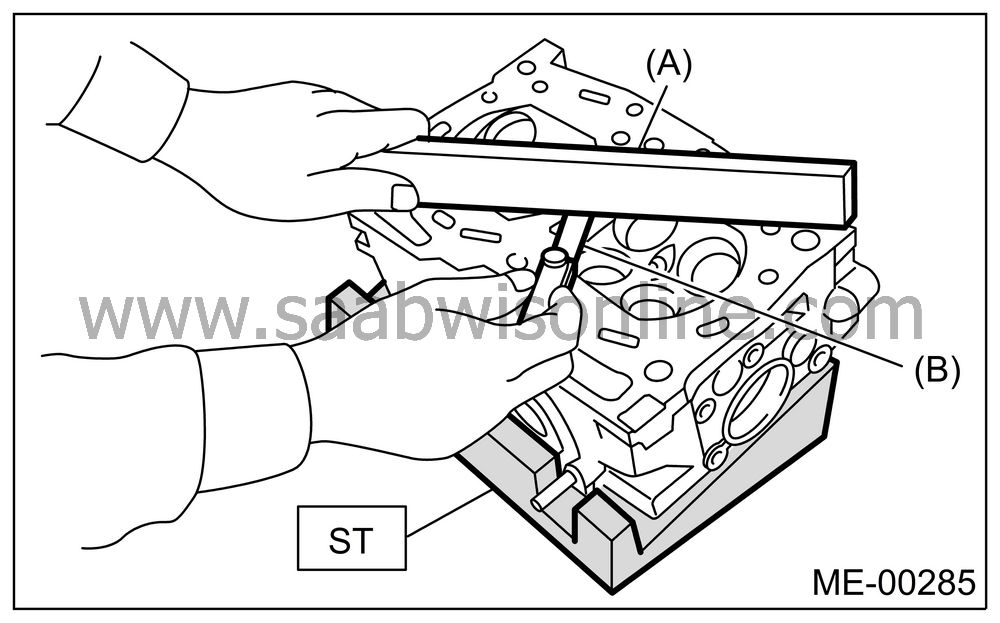
|
(A)
|
Straight
edge
|
|
(B)
|
Thickness
gauge
|
| VALVE SEAT |
Inspect the intake and exhaust valve seats, and correct the contact surfaces with a valve seat cutter if they are defective or when valve guides are replaced.
Valve seat width W:
Standard
Intake (A) 0.8 — 1.4 mm (0.03 — 0.055 in)Exhaust (B) 1.2 — 1.8 mm (0.047 — 0.071 in)
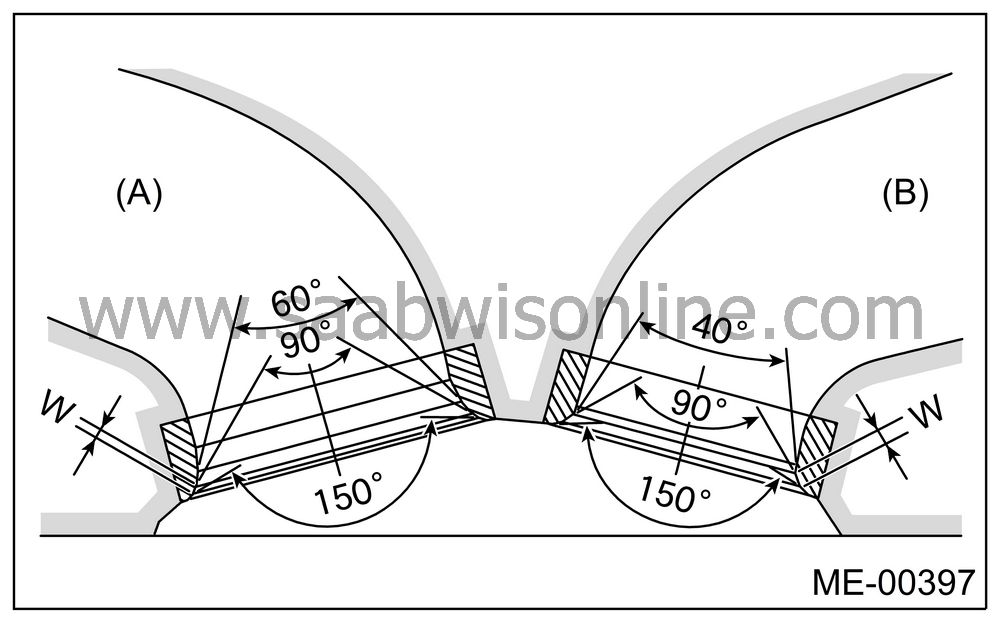
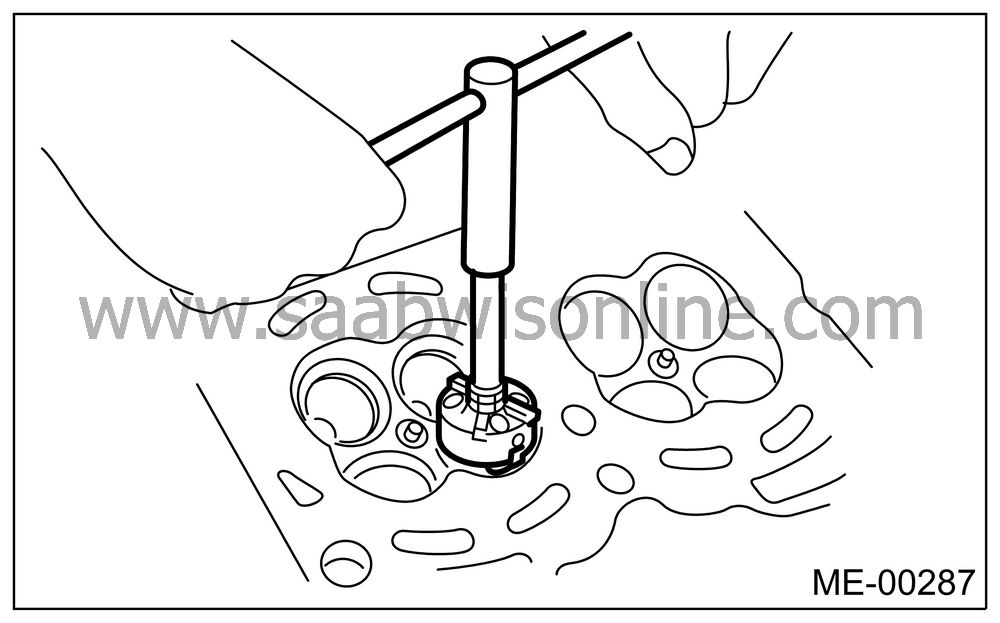
| VALVE GUIDE |
Check the clearance between valve guide and stem. The clearance can be checked by measuring respectively the outer diameter of valve stem and inner diameter of valve guide with a micrometer.
Clearance between the valve guide and valve stem:
Standard
Intake 0.035 — 0.062 mm (0.0014 — 0.0024 in)Exhaust 0.040 — 0.067 mm (0.0016 — 0.0026 in)
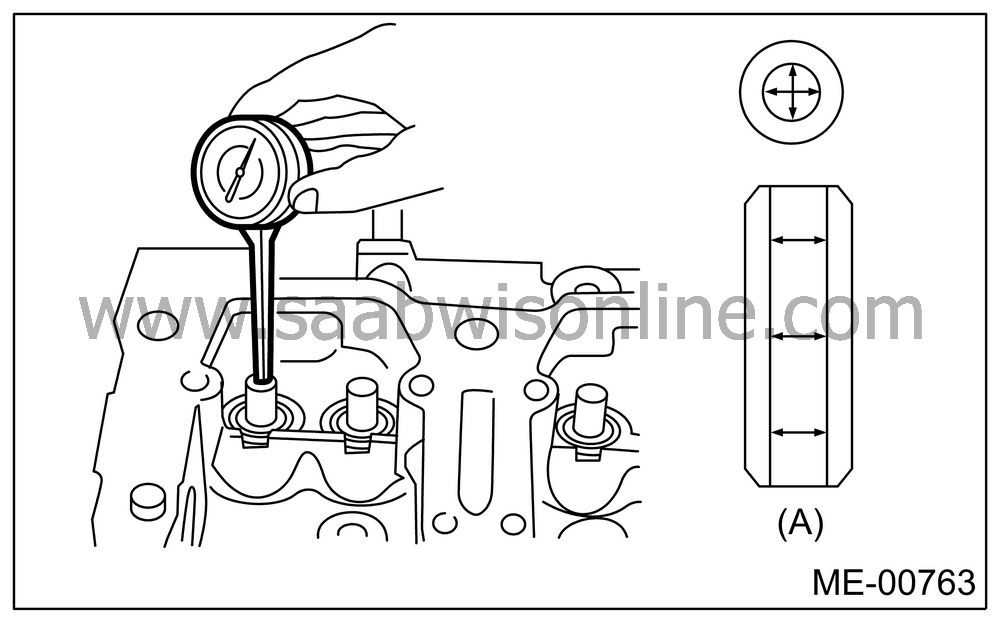
|
(A)
|
Valve guide
|
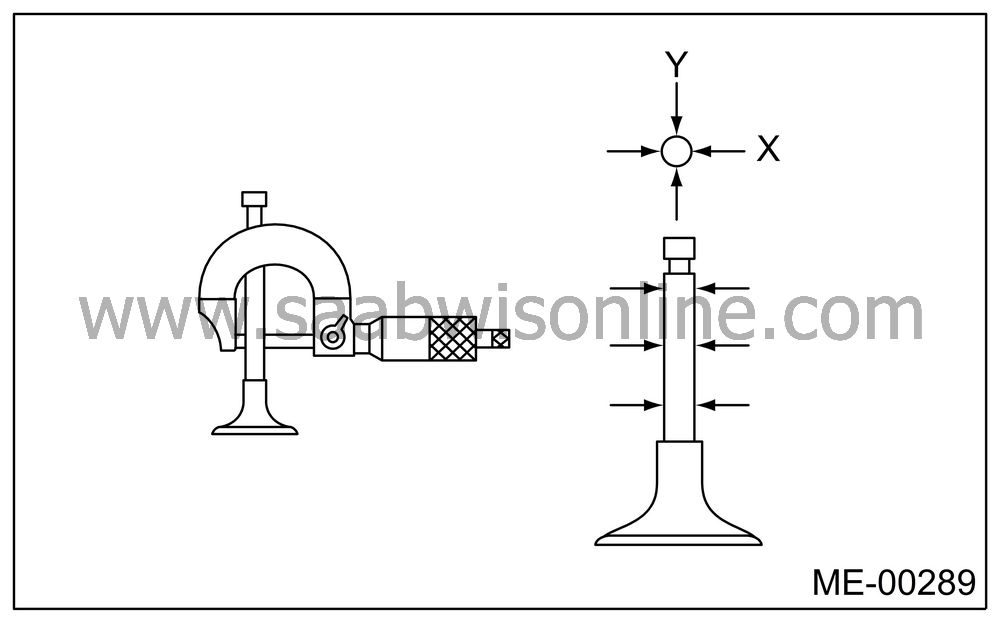
If the clearance between valve guide and stem exceeds the standard value, replace the valve guide or valve itself whichever shows greater amount of wear. See the following procedure for valve guide replacement.
Valve guide inner diameter:
6.000 — 6.012 mm (0.2362 — 0.2367 in)
Valve stem outer diameters:
Intake
5.950 — 5.965 mm (0.2343 — 0.2348 in)Exhaust
5.945 — 5.960 mm (0.2341 — 0.2346 in)Place the cylinder head on ST1 with the combustion chamber upward so that valve guides enter the holes in ST1.
Insert ST2 into the valve guide and press it down to remove the valve guide.
ST1 32005098 CYLINDER HEAD TABLE
ST2 32005148 VALVE GUIDE REMOVER
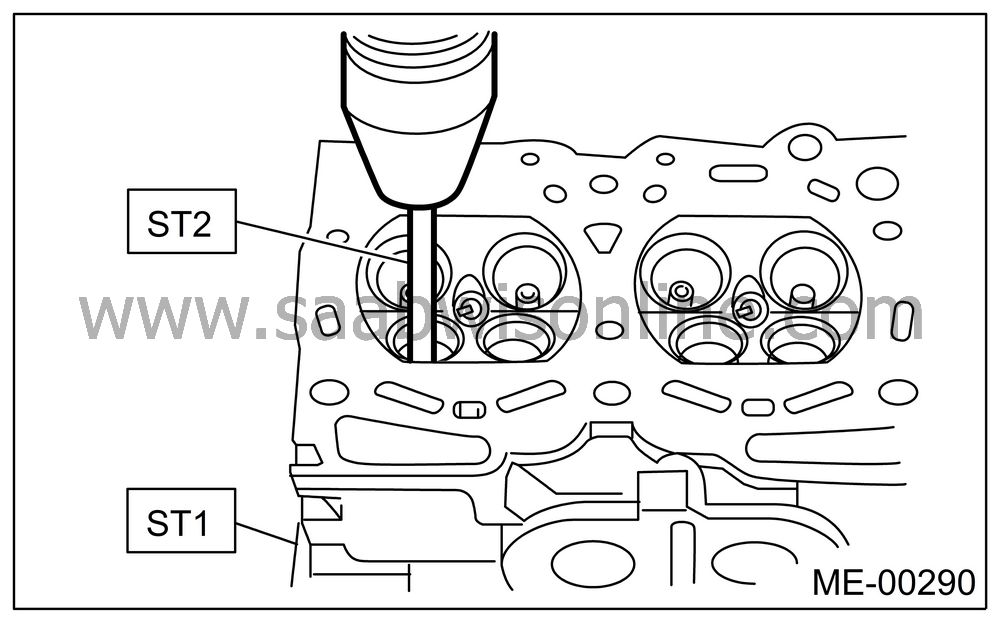
Turn the cylinder head upside down and place the ST as shown in the figure.
Intake side:
ST 32005150 VALVE GUIDE ADJUSTER
Exhaust side:
ST 32005151 VALVE GUIDE ADJUSTER
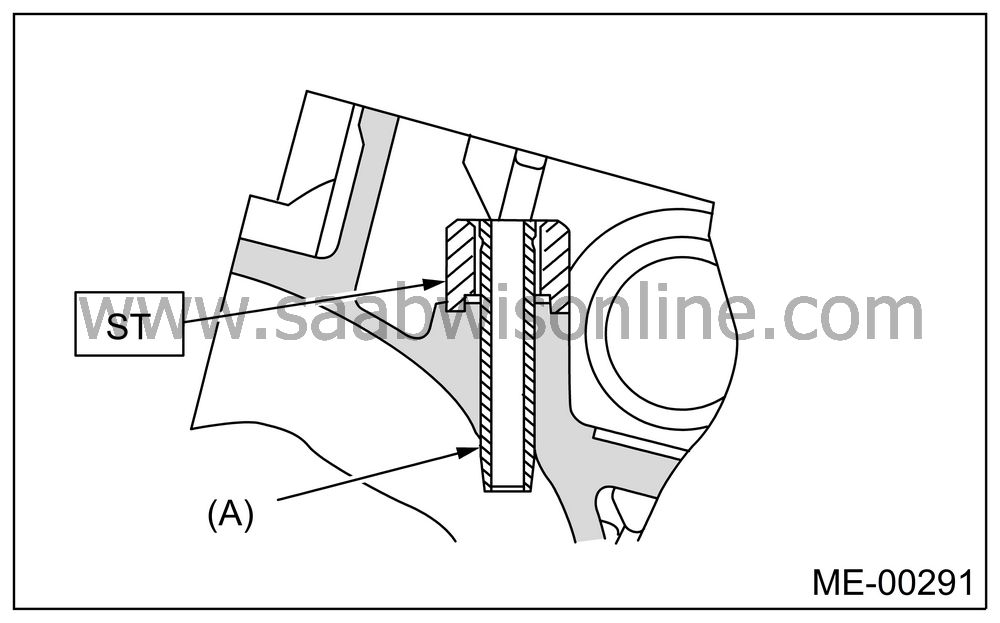
|
(A)
|
Valve guide
|
Before installing a new valve guide, make sure that neither scratches nor damages exist on the inside surface of the valve guide holes in cylinder head.
Put a new valve guide, coated with sufficient oil, in cylinder, and insert the ST1 into valve guide. Press in until the valve guide upper end is flush with the upper surface of ST2.
ST1 32005148 VALVE GUIDE REMOVER
Intake side:
ST2 32005150 VALVE GUIDE ADJUSTER
Exhaust side:
ST2 32005151 VALVE GUIDE ADJUSTER
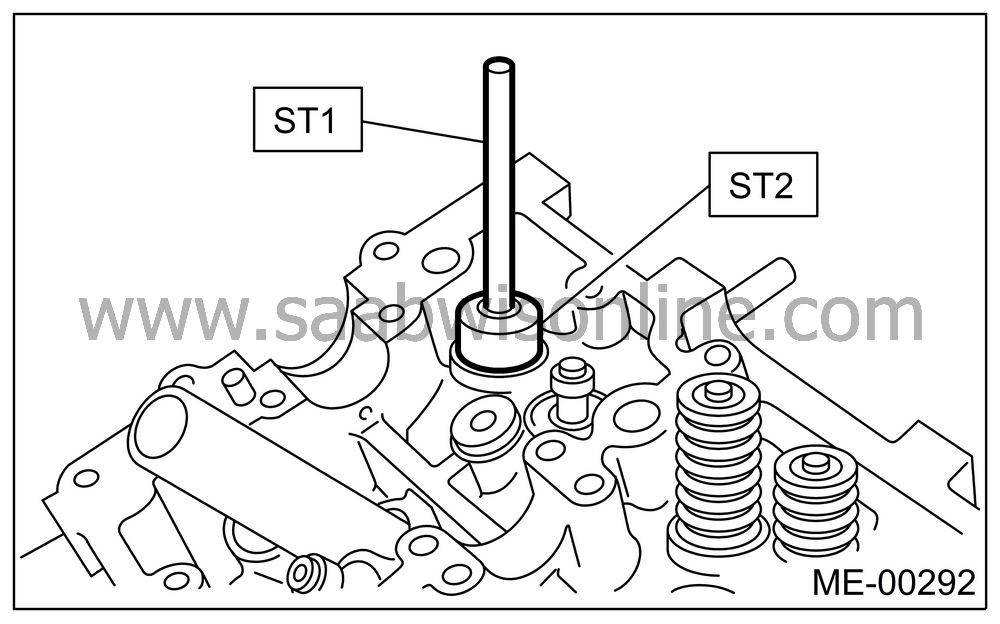
Check the valve guide protrusion.
Valve guide protrusion L:
Intake
20.0 — 21.0 mm (0.787 — 0.827 in)Exhaust
16.5 — 17.5 mm (0.650 — 0.689 in)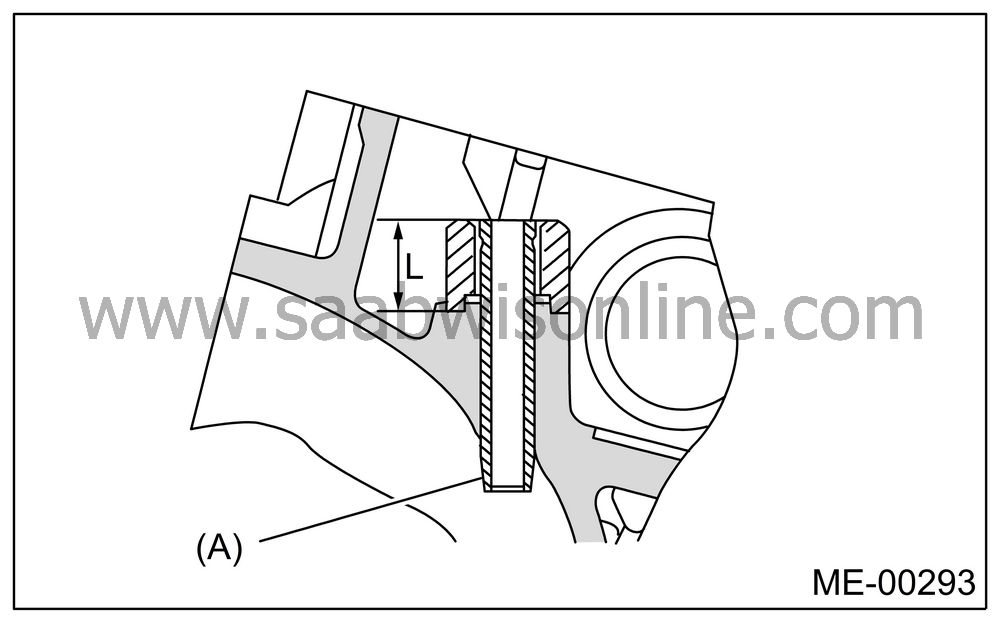
|
(A)
|
Valve guide
|
Ream the inside of valve guide using ST. Put the reamer in valve guide, and rotate the reamer slowly clockwise while pushing it lightly. Bring the reamer back while rotating it clockwise. After reaming, clean the valve guide to remove chips.
| Important | ||
| • |
Apply engine oil to the reamer
when reaming.
|
|
| • |
If the inner surface of the valve guide is torn, the
edge of the reamer should be slightly ground with an oil stone.
|
|
| • |
If the inner surface of the valve guide becomes lustrous
and the reamer does not chip, use a new reamer or remedy the reamer.
|
|
ST 32005149 VALVE GUIDE REAMER
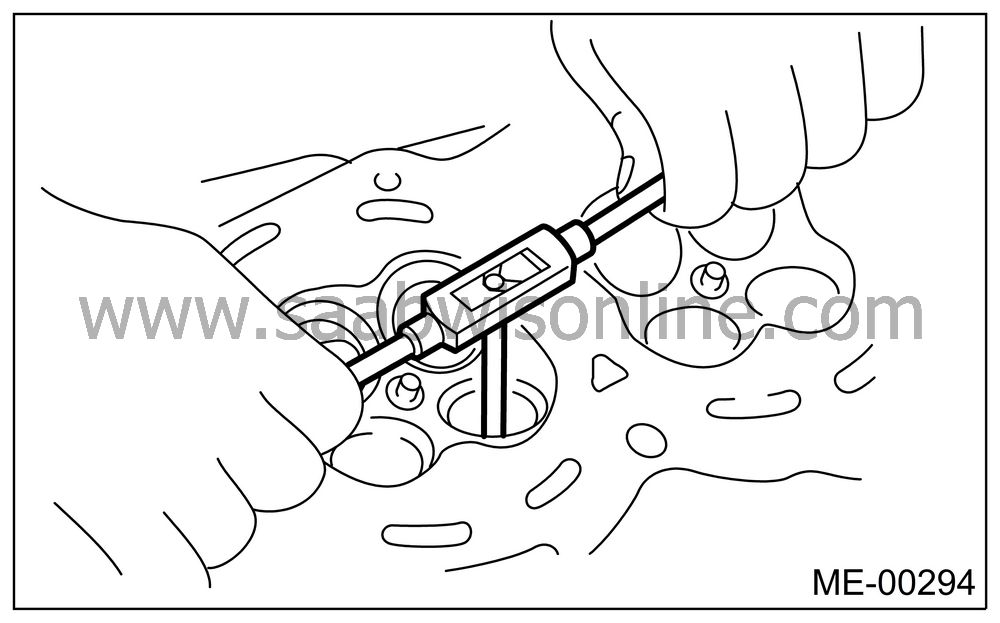
Recheck the contact condition between valve and valve seat after replacing the valve guide.
| INTAKE AND EXHAUST VALVE |
Inspect the flange and stem of valve, and replace if damaged, worn or deformed, or if “H” exceed the standard value.
H:
Intake
Standard: 0.8 — 1.2 mm (0.03 — 0.047 in)Exhaust
Standard: 1.0 — 1.4 mm (0.039 — 0.055 in)Valve overall length:
Intake
120.6 mm (4.75 in)Exhaust
121.7 mm (4.79 in)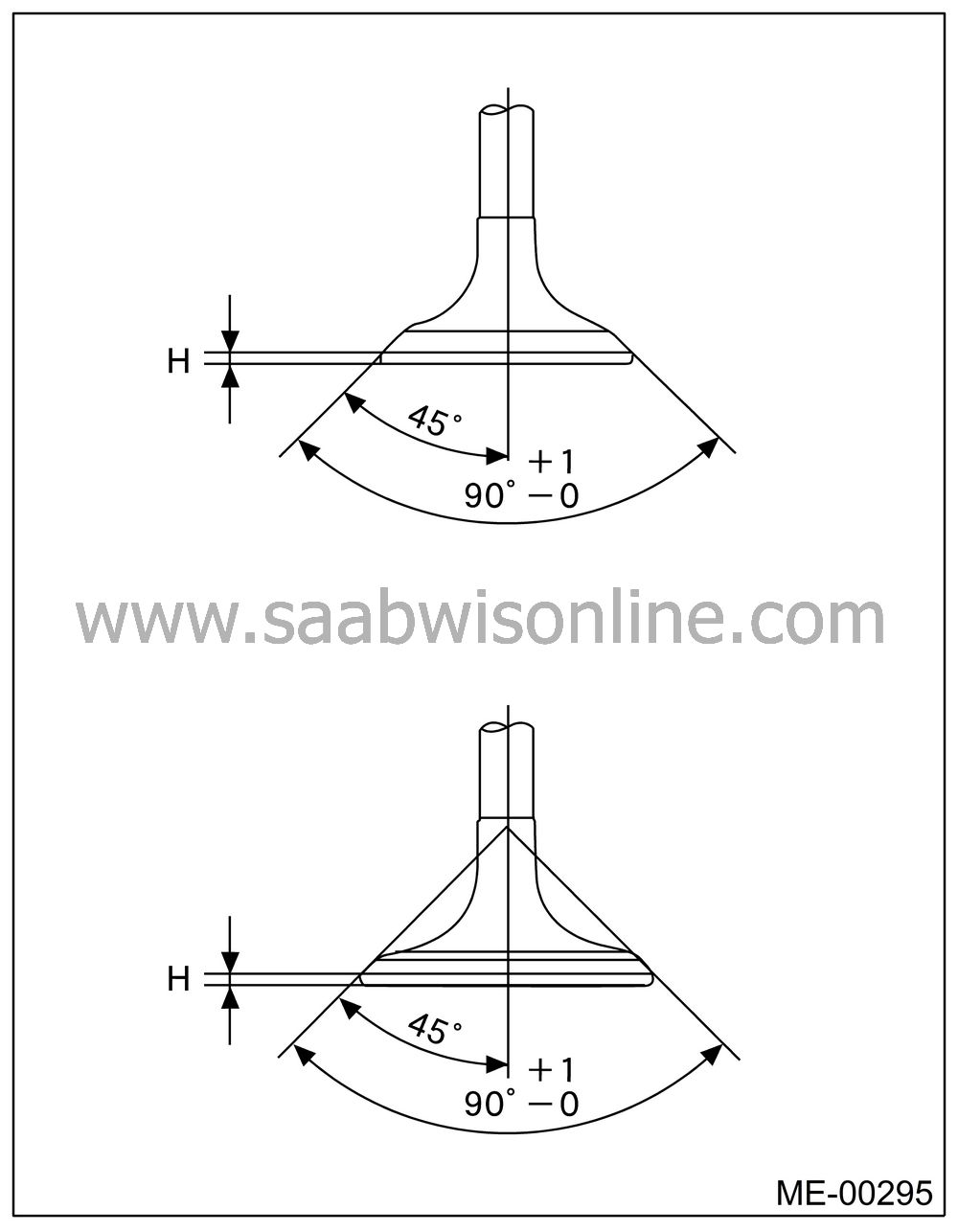
Put a small amount of grinding compound on the seat surface and lap the valve and seat surface.
 Install a new intake valve oil seal after lapping.
Install a new intake valve oil seal after lapping.


